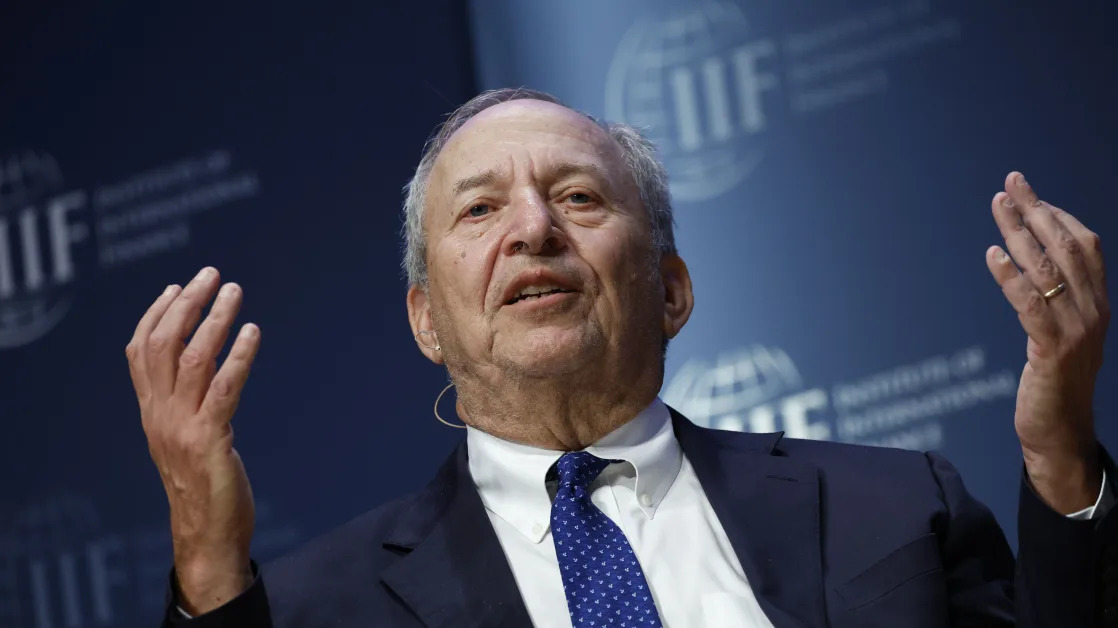(Bloomberg) -- Former US Treasury Secretary Lawrence Summers dismissed the idea of the government setting up a reserve of Bitcoin assets, and cautioned about the political challenge ahead in scaling down federal spending in the way billionaire and President-elect Donald Trump ally Elon Musk plans.
“Some of what is being said — this idea that we should have some kind of national Bitcoin reserve — is crazy,” Summers said on Bloomberg Television’s Wall Street Week with David Westin. “There’s no reason to do that other than to pander to generous special-interest campaign contributors.”
Trump on the campaign trail proposed that the federal government maintain the ownership of its tokens, estimated at roughly 200,000 — accumulated following asset seizures. Some Trump allies have called for expanding that even further, and using presumed appreciation over time to help reduce the national debt. The incoming president has also picked a crypto proponent as the next head of the Securities and Exchange Commission.
“There are probably respects in which crypto has been over-regulated by over-zealous regulators,” and it’s important to support financial innovation, said Summers, a Harvard University professor and paid contributor to Bloomberg TV.
But he drew a distinction between the need for the government to maintain a national oil reserve and, a century ago, to establish gold holdings at Fort Knox. “Of all the prices to support, why would the government choose to support, by accumulating a sterile inventory, a bunch of Bitcoin?” he said.
Separately, the former Treasury chief said that while Musk, who’s set to be co-chair of the Department of Government Efficiency advisory panel along with Vivek Ramaswamy, aims to find $2 trillion of savings in spending, the entire federal government payroll is less than that.
Most of the government’s outlays are tied to national defense and support for American seniors, Summers highlighted. “That’s going to be enormously difficult to change politically.”
“We’re either going to have to have the political courage to tell people that things they felt entitled to for a long time they’re not going to be entitled to” or to raise taxes, Summers said, favoring the latter course of action.
More broadly, governments around the world are finding it increasingly challenging to handle their budgets in the face of populaces that are unwilling to support fiscal tightening. He spoke in a week when France’s government fell over budgetary battles and South Korea’s president briefly declared martial law amid a protracted struggle with opposition parties over fiscal matters. Germany’s coalition government also collapsed amid a dispute over spending.
“We have entitled societies that haven’t come to peace with what’s necessary to meet the entitlement,” said Summers. Those costs have climbed as the number of older people rises and as healthcare costs increase, he said. Meantime, there are rising needs for defense spending in most countries, he noted.
Adjustments need to be made either in reducing spending and benefits or raising revenue collection, but “I don’t think our leaders have been able to persuade people of that need,” he said. “That’s what is fundamentally behind the conflict.”


